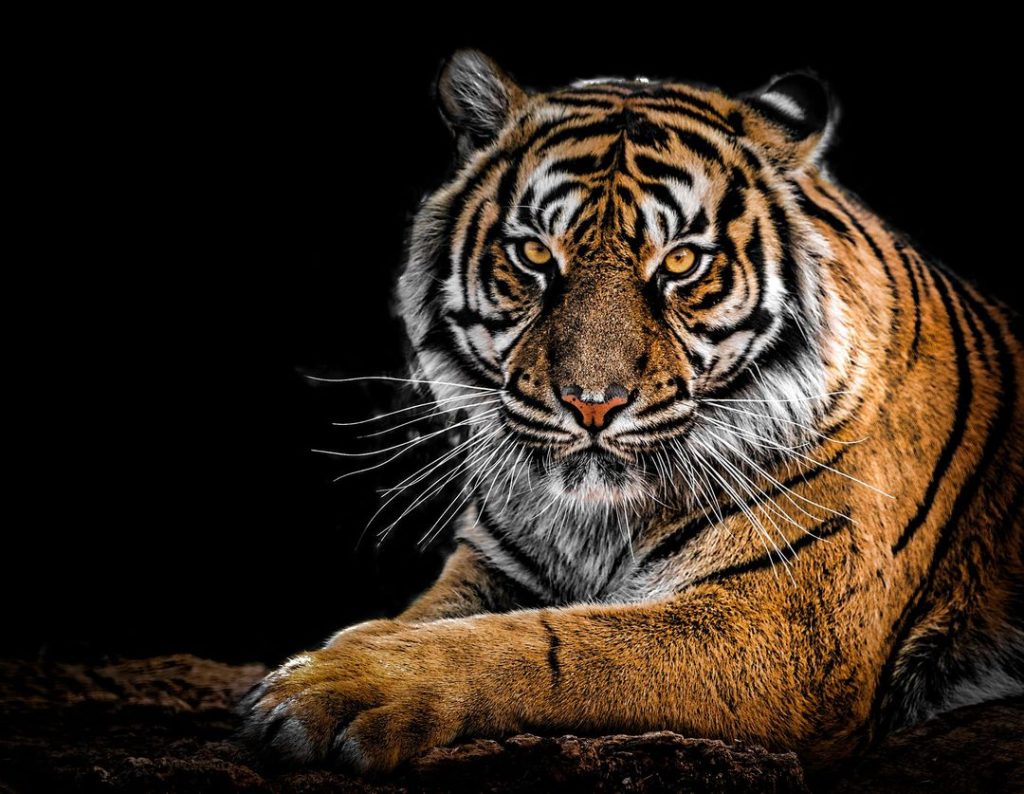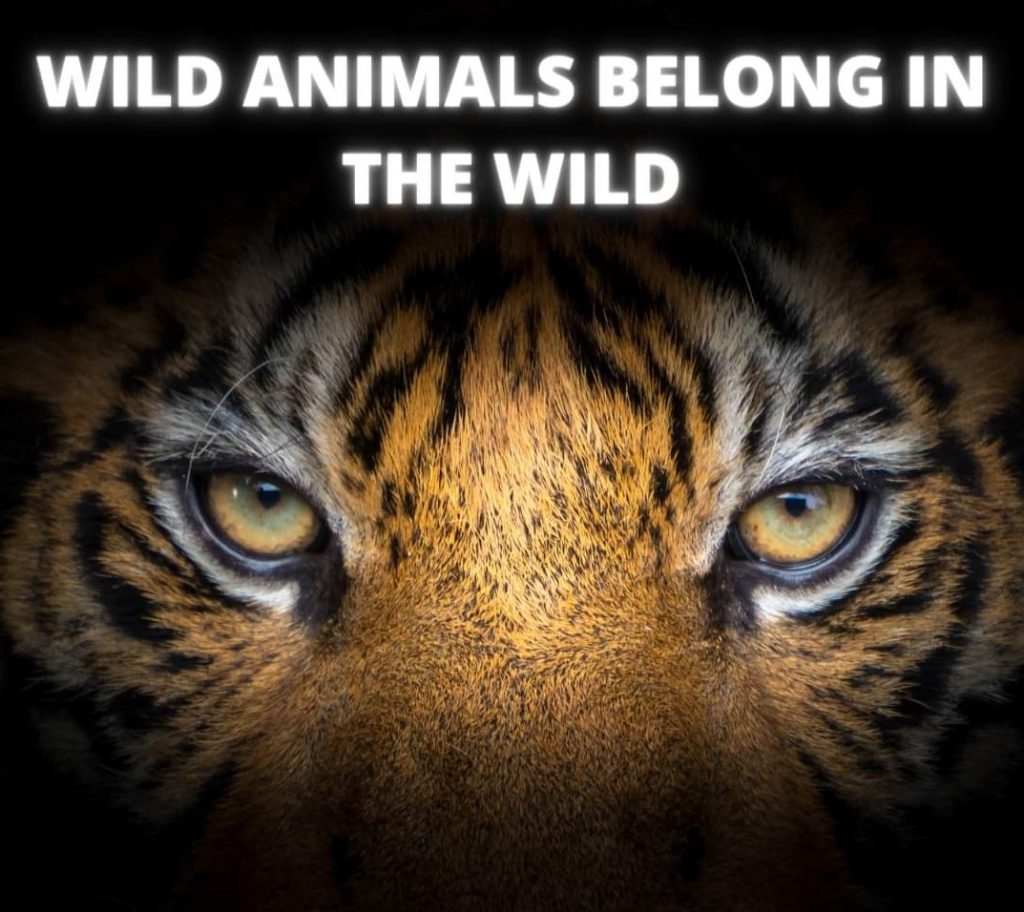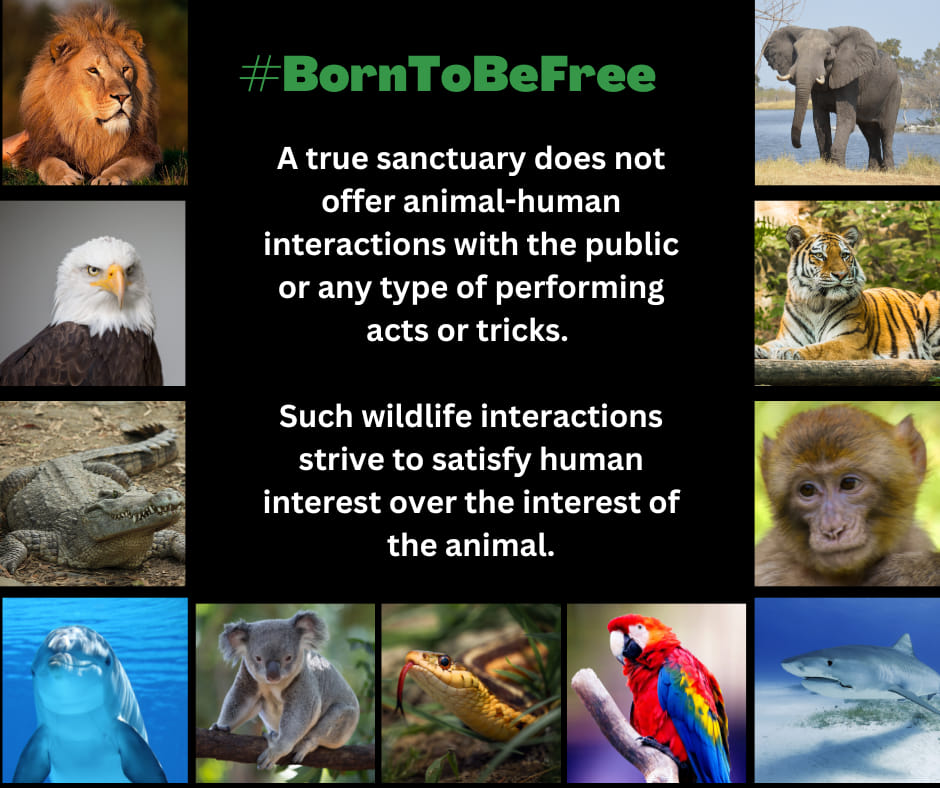
WILD ANIMALS BELONG IN THE WILD AND NOT IN YOUR HOME AS PETS AND FOR GOOD REASON.
Another animal paid the price with her life (and those she killed) because humans demand to keep exotic and wild animals in captivity or as pets, whether to exploit them for money or boost their egos, because they are ignorant, selfish, or stupid.
By now many are aware of the privately “owned” tigress Sheba that escaped in Gauteng last week. She was shot and killed. From the Vereeniging and Vanderbijlpark SPCA:
The SPCA was informed that the authorities received reports of her entering a farm with six dwellings. She attacked and killed a domestic animal (there were more before that). After this attack, she moved to a more densely populated area and this left the authorities with a very difficult decision to make as the lives of more people and animals were at risk. The SPCA was informed that due to the terrain and area, it was not possible to contain her or secure her safely. Darting her was also not an option (there are many risks and complications with darting an animal at night). The SPCA was not present at her death and was only alerted after the fact.
The NSPCA shared: “This tigress, which had already displayed the behaviour of a tiger in the wild, did not wander into a residential area on her own. She was unwillingly brought there to be held in captivity, something that should not have been allowed to take place, to begin with. It is a matter of extreme concern that permitting (which is regulated by the Gauteng Department of Agriculture and Rural Development in this instance) is not required to keep such dangerous and exotic animals in residential areas in Gauteng.”
I agree with BAN ANIMAL TRADING, who fiercely fights for the rights of animals when they say: “We are angry! – Angry at a government that fails to protect animals, angry at individuals who think wild animals are pets, angry at humans who prefer killing to saving! Our hearts are broken – because an innocent animal died, and her companion is now locked up in a zoo because of humans who think they need a tiger as a pet! Nobody needs a tiger. R.I.P SHEBA – at least you had a small taste of freedom. Safe travels into the light. May there be jungles, just for you, in the forever”
As I understand the SPCA will investigate further. This again highlights the need for legislation in the keeping of wild/exotic pets.

ABOUT TIGERS (shared by Craig View Veterinary Clinic)
The Tiger is the largest living cat species and is the most recognizable for its dark vertical stripes on rich orange fur with a white in between. Their beauty is truly remarkable. Sadly, they remain endangered and their population is decreasing. In the wild, their lifespan is between 8-10 years. Adults can reach up to 300kg. But there is more to a Tiger than beauty – they are very adaptable and intelligent animals with one of the longest short-term memories among all animals, which even exceeds humans.
Sadly, many loopholes allow Tigers to be kept as pets in South Africa, as they are not indigenous to South Africa, an exotic permit can be attained for Tigers to be kept as pets. We do not agree with any wild animals being kept as pets and we highly recommend for tigers or any animal in captivity to be spayed or neutered. Tigers are not domesticated cats. They are large, powerful and strong-fanged predators that eat dozens of kilograms of meat per day. They require large spaces and properly built enclosures which are expensive and will need constant maintenance. The risk of attack far outweighs any benefit which makes tigers unsuitable pets at any age.
The tiger and lion bone trade in SA and abroad is a whole other topic. Read more here. The plight of exotic pets extends far beyond large animals with so many smaller animals and birds living in cruel and unacceptable conditions.
KEEPING OF EXOTIC PETS
While most people care for cats or dogs, there is a disturbing rising trend of keeping exotic wild animals as pets such as snakes, parrots, monkeys, hedgehogs, fish, and many others. It might seem cool or exciting to you to own this exotic or wild animal, but they are always the one that suffers, even before they are in your care.
According to the Humane Society of the United States, the exotic pet trade is a multi-billion-dollar industry, second only to the drugs and weapons trades in terms of its gross worth. Millions of animals are forced into the exotic pet trade every year for the purpose of becoming someone’s pet or entertaining the masses in a circus or zoo.
The NSPCA shares the following:
“The contentious issue of the trading in, breeding and the keeping of exotic wild animals as pets in South Africa (and around the world) has not only deeply disturbing welfare implications for the animals concerned but, just as importantly, is a significant threat to conservation and biodiversity.
The practice of importing and exporting wild animals as pets has been happening for decades. Much of the trade is driven by purely whimsical impulse purchases and for prestigious reasons. Entertainment fads often determine which wild animals are the fashionable pets of the moment and everything from the smallest reptile to a full-grown tiger can be sold to anyone for the right price. However, most owners don`t realize the huge responsibility or costs involved when they purchase exotic pets. Nor do they consider what is going to happen to these animals when the novelty wears off.”

SOCIAL MEDIA AND PETS SHOPS ARE PART OF THE PROBLEM
Exotic pet owners, pet shops and facilities that keep and display and sell exotic animals fuel the exotic pet industry. They make people think that it is okay to have these animals as pets and as companion animals and most of the time, these sentient beings end up in the wrong hands. Most likely someone unknowledgeable, who will either exploit them or add to their suffering by not meeting their needs.
It appears to be very easy to get your hands on an exotic pet. Thousands of Internet sites offer to sell, give care advice, and provide chat rooms where buyers and sellers can negotiate prices. The sellers do not make any mention of the local laws regulating private possession of exotic or wild animals, or about the dangers, challenges, and the physical and physiological needs of the animals they exploit and sell as commodities and not as sentient beings. The suffering of the animals in the hands of uninformed and unqualified buyers is of no concern in this profitable exotic/wild pet trade.
The glamorization of exotic pets through pop culture and social media will mask cruelty and falsely legitimize the trade. You think these animals look adorable, but they’ve actually been sentenced to a lifetime of suffering in captivity. These social media platforms need to seriously step up their game if they truly care. I believe, like with cigarettes or alcohol, there should be a notification and warnings about the overpopulation and keeping of exotic pets on all animal posts on social media.
I always look at both sides of an argument, but those that do argue that these animals can be kept as pets and should be legal, miss a crucial factor. They focus on it is your right to own them or that it creates jobs, but they miss the most important fundamental argument against owning them………it is not to the benefit of these animals and most suffer, especially when their needs are not being met. I agree that the term “exotic” might have to be defined better and currently means non-traditional or uncommon pet”, and what constitutes such is completely subjective depending on the culture, but wild is wild, nothing unclear about that.
There are legal and illegal sides to the exotic pet trade. But legality doesn’t matter; captive-bred or wild-caught, it is cruel and the animals never benefit from it. In the case of Sheba, this lack of regulation has jeopardized the welfare of countless exotic wild animals and placed the lives of humans and other domestic animals in the area at complete risk. As more and more wild and exotic animals are allowed to be owned without regulation, more tragedy is expected to occur. Governments across the globe must act and ban the global trade of wildlife as well as address the illegal trade with way harsher punishment. Wildlife trade is increasing the risks to human and animal health, compromising animal welfare, and placing biodiversity under immense and unsustainable pressure.
I fully agree with the SPCA movement and oppose the keeping and breeding of wildlife in captivity.
Also remember that true sanctuaries do not offer human-animal interaction or acts or tricks, not even for educational purposes. These interactions never benefit the animals but only satisfy the human interest. A three-year-old can tell you a lot about a dinosaur that they have never seen in real life, so the education reason is not valid anyway. Please don’t support this!

Also read about Pawsome pet new year’s resolutions.
ALREADY OWN AN EXOTIC PET?
If you own an exotic animal and haven’t done already, please seek expert advice from a specialized veterinarian to ensure you’re meeting as many of their welfare needs as possible. Give them the life they deserve. If you can no longer take proper care of them, surrender them to the SPCA or reputable species-specific organizations. It’s very important that whatever happens, NEVER release your pet into the wild under any circumstance. Many of them will die and they might not be native to our ecosystems and will become invasive, resulting in a disruption in the biodiversity, and most likely the death of many other animals.
HOW YOU CAN HELP
Help us keep wild animals in the wild, by not buying or breeding them. If you can give an exotic animal that has already been human-imprinted a suitable home, then please only adopt them from reputable organizations. #adoptdontshop
- Don’t buy or breed them.
- Educate your friends, family and the public about the topic.
- Volunteer at organizations that have to clean up the mess.
- Report neglect or cruelty. If you observe an exotic animal being abused, living in deplorable conditions, etc., report it to your nearest SPCA or the NSPCA.
- Sign petitions and join protests against the keeping of exotic/wild animals.
- Support legislation at all levels to prohibit private possession of exotic animals.
- Adoption, if available is the only ethical option.
- Don’t share the “good sides”: a huge driver in the wildlife trade are the cute videos of exotic pets on social media – by sharing these, you are providing this cruel industry with free advertising. Call out the cruelty behind these cute videos!
- Do not support any petting farms, wildlife interaction, animal rides, zoos, aquariums, or the circus with performing animals.
We can all make a promise to Sheba and Tyson (her partner) that their stories will be used to make South Africa a better place for animals. We have to do better. The animals need your voice, your actions, and your compassion! Please don’t allow animal suffering to continue.
Next week we will look at the specific reasons why it is cruel to keep these animals in captivity.
WHEN YOU KNOW BETTER, DO BETTER!